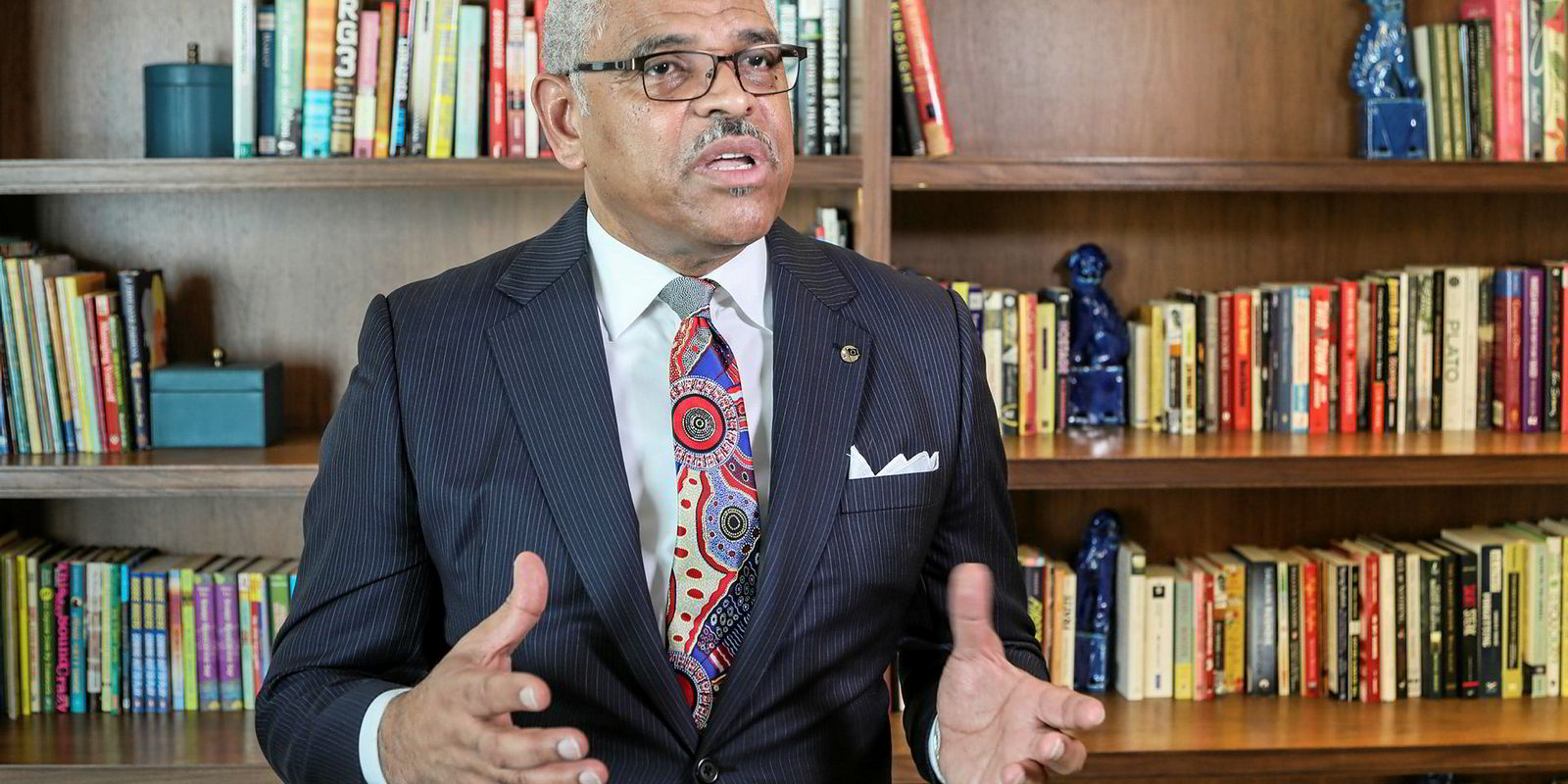A US ban on Carnival Corp would hurt not only the company but dozens of local economies, experts say.
A federal judge may temporarily block the world's largest cruise line from docking at US ports as punishment for a possible probation violation related to environmental wrongdoing.
Carnival's nine brands sail to and from dozens of US ports, from Honolulu to Seattle to US Virgin Islands, including several each in Florida and Alaska.
"It could be a catastrophe," says Carl Berkowitz, a US-based cruise litigation consultant.
"The economy in Florida would be hurt the most."
Carnival spokesman Roger Frizzell could not specify how many US ports are used by Carnival ships but confirmed that the company enters and exits 700 worldwide.
Carnival and US-based Cruise Lines International Association (CLIA) declined to comment on the case. Donald is a CLIA board member and was chairman from 2017 to 2019.
Last month, Carnival began building a $163m "Launch Pad" terminal at Florida's Port Canaveral for its largest ship ever, the 6,600-berth Mardi Gras set for delivery in 2020.
Port officials declined to comment on how a Carnival ban, which would be implemented by US District Judge Patricia Seitz, may affect their facility.
'Shockwaves through the industry'
A ban on Carnival ships from US ports — even for the shortest while — would have far-reaching implications for the entire cruise sector, says Kendra Ulrich, senior shipping campaigner with US-based environmental group Stand.earth.
"If the US Federal Judge Seitz decides to revoke Carnival’s probation for continued criminal misconduct, it will send shock waves through the industry," she told TradeWinds.
"The US is the largest cruise market in the world, accounting for over 40% of all cruiseship passengers globally."
Carnival would also be heavily affected, given 75 of Carnival's 105 ships would be subject to the potential court ruling, Ulrich pionts out.
"Losing the ability to access the U.S. market, even for a limited period of time, would be devastating for Carnival’s bottom line," she said.
"While that might seem like a harsh punishment, this is a company that has a track record of felony misconduct spanning from the 90s to today."
To ban or not to ban
Seitz will decide whether or not to implement the ban at a June hearing that she wants chairman Micky Arison and chief executive Arnold Donald to attend.
The cruise major has served two years of the five-year probation tied to a $40m settlement for illegally dumping oil into the ocean from its Princess Cruises ships for eight years and lying about it to US authorities.
While on probation, Carnival and its subsidiary cruise lines tried to avoid unfavorable findings by preparing ships in advance of court-ordered audits and falsifying records.
The New York-listed company also dumped plastic garbage into the ocean and illegally discharged gray water into Glacier Bay National Park in Alaska.
The company also has tried to lobby the US Coast Guard through a back channel to change the terms of the settlement.
The company has acknowledged these incidents, according to court filings.
"Just a blip on the screen'
Seitz will probably impose another fine instead of banning Carnival ships from US ports, since she fined them only $40m in 2017 for the original offences, says Miami cruise lawyer Jim Walker.
"It's such an insignificant amount of money," he tells TradeWinds.
"Is she coming to the realisation that she should have been tougher two years ago?"
Plus, a temporary ban would certainly hurt the wallets of US ports, ship suppliers and local businesses, while Carnival would easily move its ships and itineraries away from US shores, he said.
"I think she's just trying to get their attention," he said.
"This is just going to be a blip on the screen."





